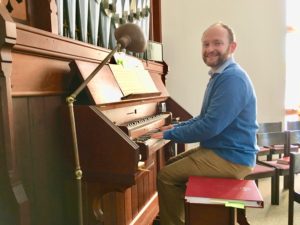 Tuesday, January 29
Tuesday, January 29
10:00 a.m. – CNA Graduation Ceremony
7:00 p.m. – CLA Circle rescheduled, Barbara Berg hosts
Wednesday, January 30
5:30 p.m. – Confirmation Class
7:00 p.m. – Choir rehearsal
8:00 p.m. – Band rehearsal
Thursday, January 31
10:00 a.m. – Adult Bible Study
Sunday, February 3 – Fourth Sunday after Epiphany
8:45 a.m. – Choir Warm-up
9:30 a.m. – Worship with Holy Communion – LIVE broadcast
10:30 a.m. – Fellowship Hour
10:50 a.m. – Sunday School/Youth Forum
 11:00 a.m. – Annual Meeting of the Congregation
11:00 a.m. – Annual Meeting of the Congregation
3:00 p.m. – Pew to Pulpit – Pulpit Rock Brewing Company






